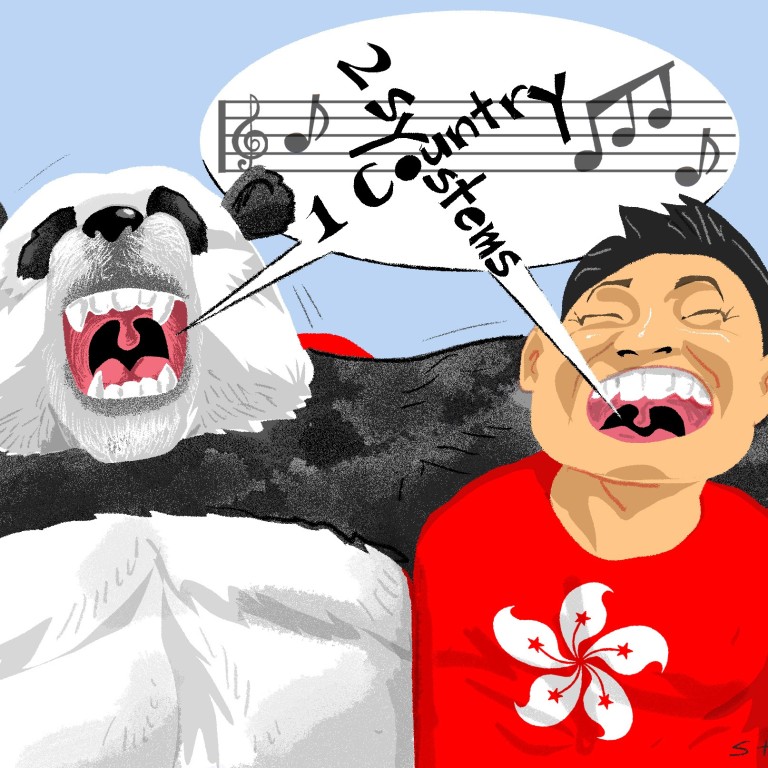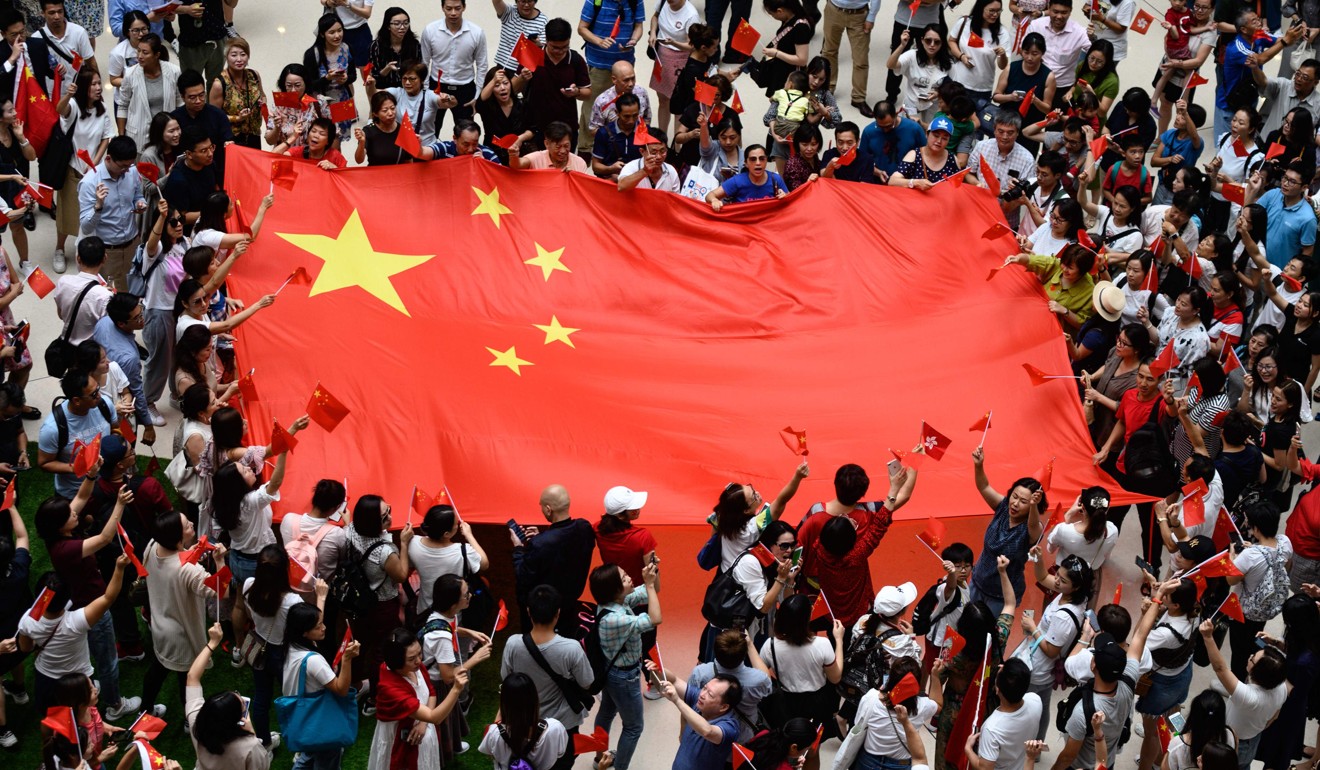
For its 70th National Day, a strong China can afford to grant Hong Kong protesters’ wishes
- Are flag-waving, anthem-singing patriots or underperforming officials what China needs? Beijing should consider fostering genuine patriotism in Hong Kong under ‘one country, two systems’, by responding to Hongkongers’ needs
Encouraging vocal and physical duels with compatriots is beneath a superpower. Furthermore, such unseemly displays of patriotism exacerbate tensions between Hong Kong and Beijing, in a way that adds credence to the narrative that Hong Kong is merely a colony of China, rather than part of one country sharing the fruits of its rejuvenation.

Lam has also, carelessly at best and intentionally at worst, told the world of her heartfelt desire to quit, along with the national leadership’s military and political strategies. No CEO of any major corporation would keep such an employee. China deserves better. Hong Kong deserves better.
Did Carrie Lam just say sorry behind closed doors?
As two millennia of Chinese history should have taught us, a powerful country falters when its leaders are surrounded by political eunuchs who care only about their own interests. China and Hong Kong deserve better.
The trouble with trying to turn Hong Kong’s youth into ‘patriots’
With Canada’s enhanced recognition of Quebec’s political, social and cultural characteristics, Quebec independence is now a negligible issue in Canadian politics. Quebecois have fully embraced their identity as Quebecois/Canadians.
The purpose of such an inquiry is not to assign blame, or allow for leniency, but to provide truth and justice for the past and lessons for the future.
Sixth, amnesty for all found to have engaged in illegal actions in relation to protests since June, with September 30 as a cut-off date, will pave the way for reconciliation. Hong Kong cannot become a divided society such as the West Bank where hate festers.
Eight ways for Hong Kong to find hope again
It is possible that, by refusing the protesters’ four remaining demands, Beijing is repelling the notion of protests bringing about political change, lest it spread across the border. We believe that by responding to Hongkongers’ needs at this critical juncture, Beijing will show Hong Kong truly enjoys its own system within China’s embrace.
It will also prove that Hong Kong, and the world, can count on Beijing to keep its word. It would be strong, compassionate leadership at its most virtuous and forward-looking.
Born and raised in Hong Kong, Phil C.W. Chan is senior fellow at the Institute for Security and Development Policy, and author of the book China, State Sovereignty and International Legal Order. Paul Serfaty is a Cambridge-educated barrister and investor who has been living in Hong Kong for over 30 years


